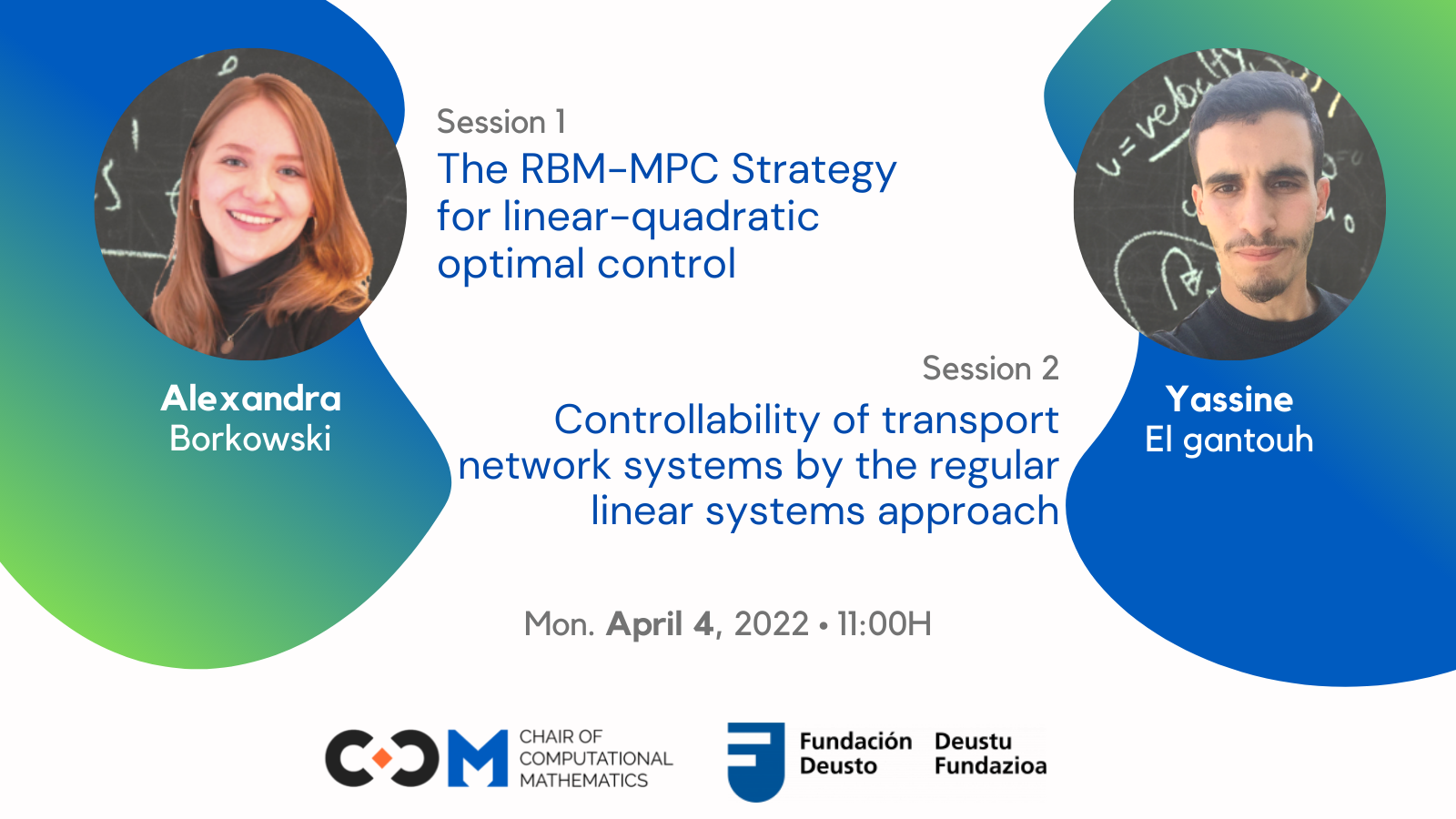
CCM double-seminar: “The RBM-MPC Strategy for linear-quadratic optimal control” and “Controllability of transport network systems by the regular linear systems approach”
Next Monday April 4, our team members at DeustoCCM, Alexandra Borkowski with an Internship for her MsC. in Computational and Applied Mathematics and Yassine El gantouh Postdoctoral Reseacher from UAM, will be talking in a double session as part of the CCM – Chair of Computational Mathematics seminars, about:
11:00H “The RBM-MPC Strategy for linear-quadratic optimal control”
By Alexandra Borkowski
Abstract. This talk introduces the MPC-RBM Strategy for Optimal Control Problems, which combines Model Predictive Control (MPC) and the Random Batch Method (RBM). This strategy repetitively predicts an optimal control for reduced dynamics and subsequently applies it to the original dynamics. In this context, the question arises whether this strategy is stabilizing and to what extent the MPC-RBM strategy approximates the true Optimal Control of the given Optimal Control Problem.
To facilitate this analysis, we consider linear dynamical systems with quadratic cost functions, so-called LQR-Problems, whose analytical solutions are given in a feedback form based on solutions to the Matrix Riccati Equations.
We derive Stability and Convergence Results for the MPC-RBM Strategy applied to these LQR-Problems and illustrate its application in a numerical example.
11:30H “Controllability of transport network systems by the regular linear systems approach”
By Yassine El gantouh
Abstract. In this talk, we study the controllability properties of a class of transport processes on metric graphs subjected to time-invariant transmission conditions. Based on the feedback theory of infinite-dimensional linear systems, we introduce a necessary and sufficient condition for the boundary approximate controllability of such systems. Starting from this condition, we characterize approximate controllability in terms of an algebraic property of the system coefficients, which reduces to the usual Kalman controllability criterion in the case of a simple transport process. In addition, we present a new algebraic controllability condition in terms of the generic rank of the so-called extended controllability matrix associated with the transport network system.


